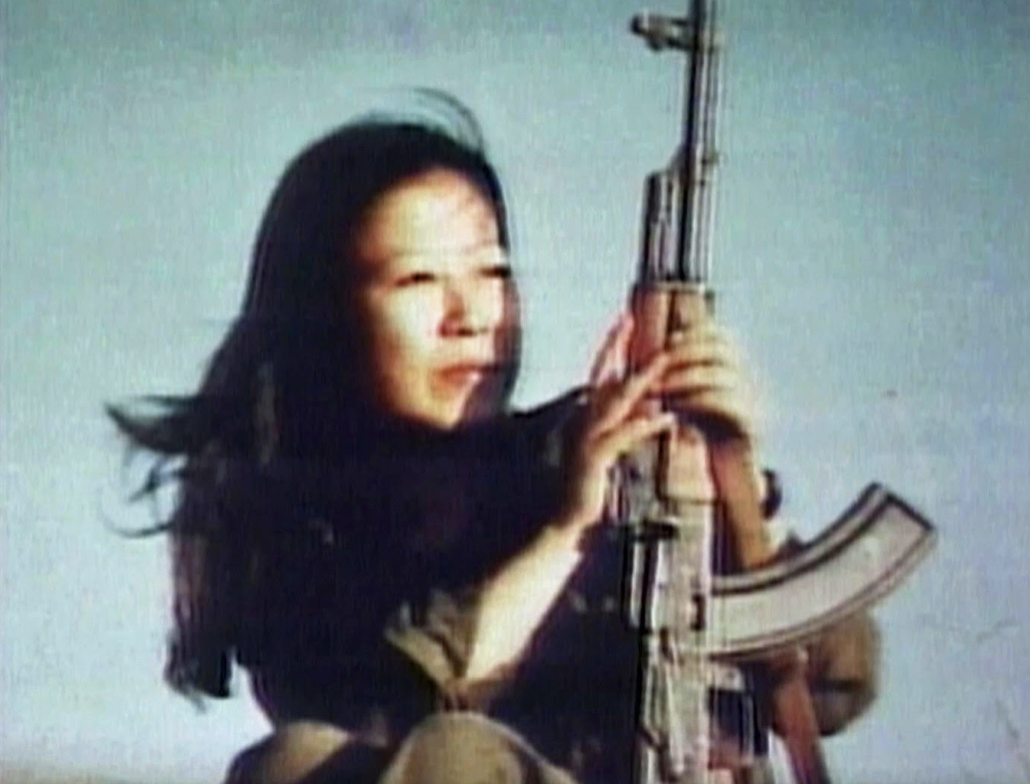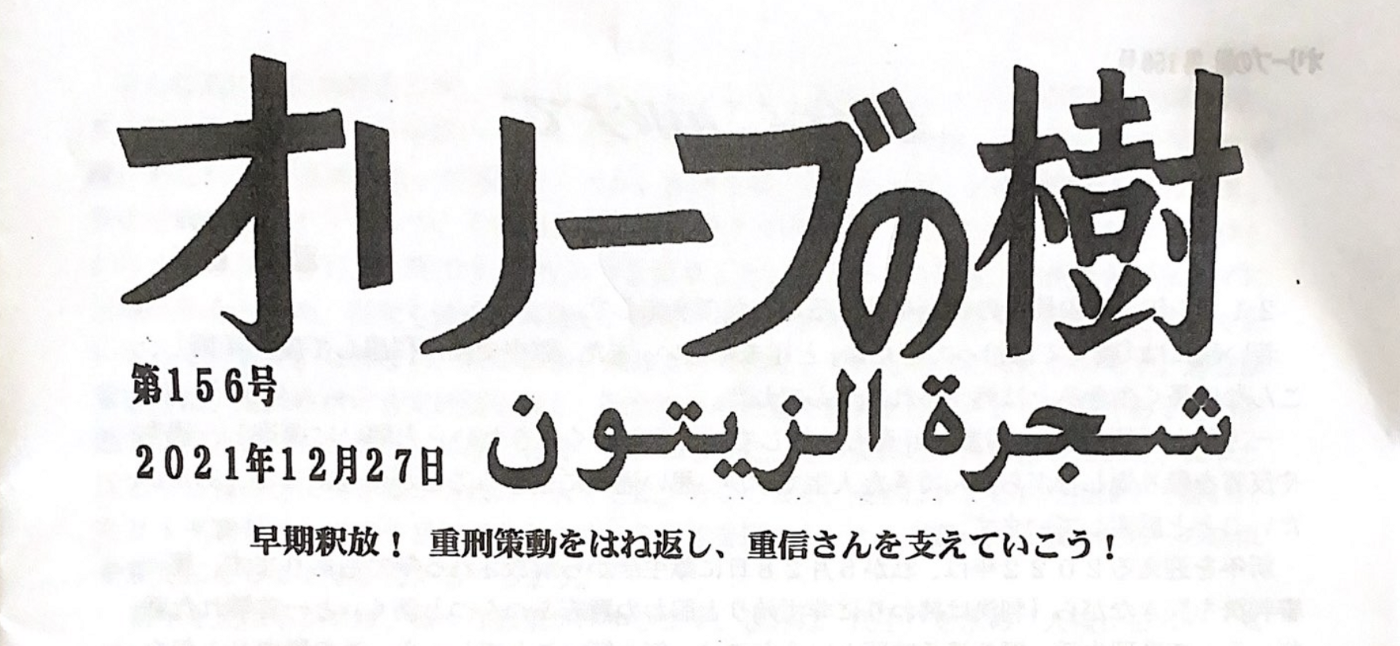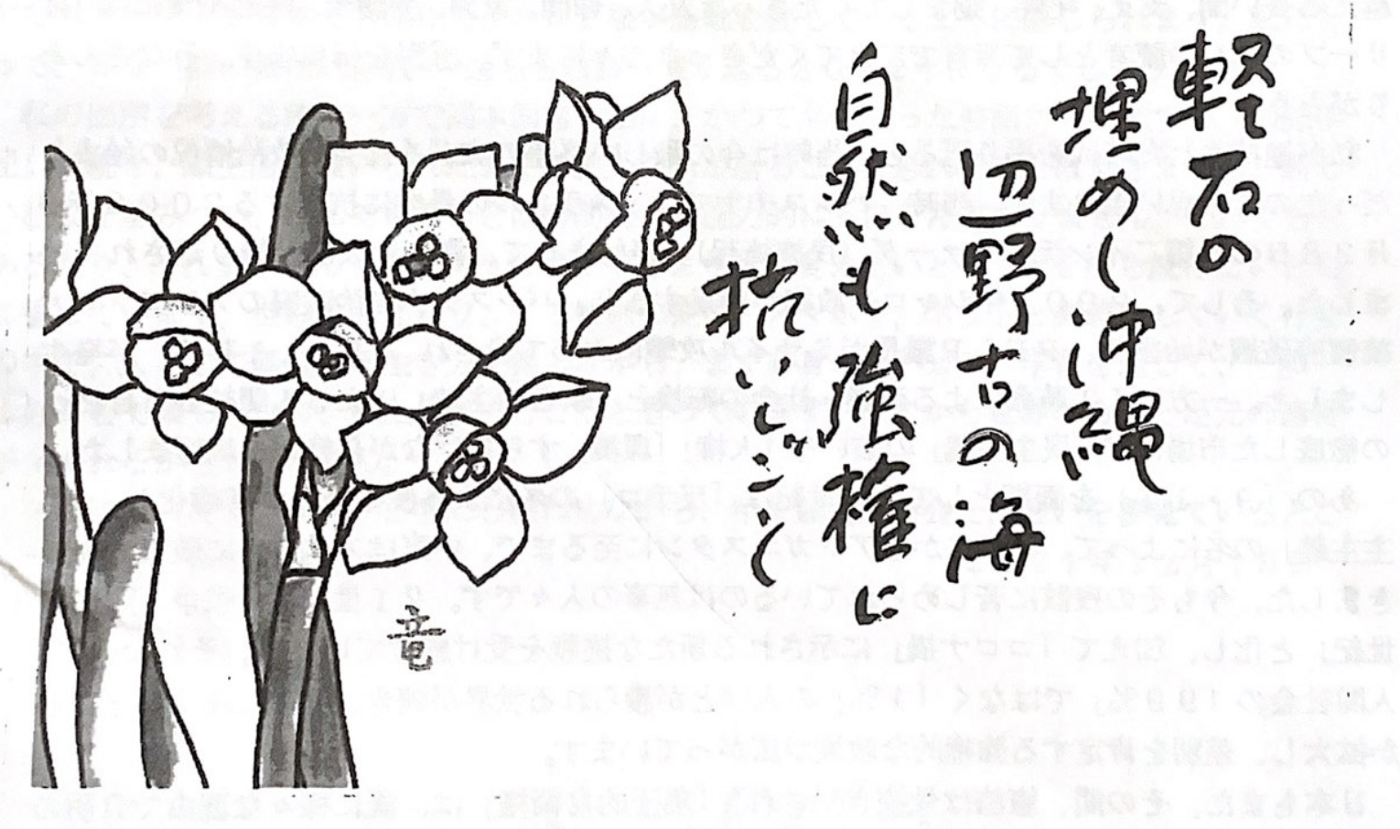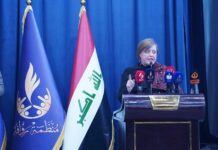
The following translation of Fusako Shigenobu‘s last newsletter from prison was published by translator Lisa Hofmann-Kuroda at Medium. We are honored to republish this important translation and once again salute Fusako Shigenobu upon her liberation, her daughter Mai and all of her comrades in struggle.
Fusako Shigenobu is the former leader of the Japanese Red Army, a communist guerrilla organization which carried out attacks against the embassies of various Western states, the US military, and multinational corporations from the 1970’s until the late 1980s. Fusako was born to a lower-middle class family in Tokyo in 1945, and began her activism in the late 60’s protesting student fee hikes at Meiji University, where she was taking night classes. From there, she became involved in the Japanese student movement, which was protesting both the Vietnam War and Japan’s collusion with the American empire in the form of the US-Japan Security Treaty.
During the early 1970s, she and several comrades traveled to Lebanon to take up armed struggle in solidarity with the Popular Front for the Liberation of Palestine (PFLP), eventually leading to the creation of the Japanese Red Army. In 1972, three Japanese volunteers for the PFLP executed an attack on Israel’s Lod Airport (later known as the Lydda Struggle) in an attempt to assassinate an Israeli scientist who was responsible for developing biochemical weapons for use against the Palestinian people. Although Fusako was not present at the attack, she was forced to go into hiding after the JRA was designated a “terrorist” organization and PFLP and JRA members became targeted for assassination by Israeli death squads.
As Fusako’s daughter, Mei Shigenobu, notes in a recent piece for The Funambulist:
The Japanese Red Army (JRA) is mostly known in Japan and elsewhere for its armed struggle and military operations against capitalist and imperialist interests around the world, which often took the form of hijacks and hostage-taking. However, it is much lesser known that the JRA undertook consistent and effective solidarity with the Palestinian people through humanitarian, artistic, and grassroots efforts. For example, some Japanese medics went to Lebanon to open clinics in refugee camps, or to train people in acupuncture; artists contributed artwork or co-produced plays, while writers wrote about or translated the writings of prominent Palestinians such as Ghassan Kanafani.
Fusako also fulfilled a crucial role as an editor at Al Hadaf magazine, the public relations office of the Popular Front for the Liberation of Palestine.
Her role there strengthened Japanese support for the Palestinian cause by keeping Japanese leftist activists informed of what was happening on the ground in the Palestinian struggle and the Middle East. She also provided logistical support to Japanese volunteers who arrived, connecting them to Palestinian partners.
In 1973, Fusako gave birth to her daughter, Mei Shigenobu. They lived underground for decades before Fusako was arrested in Japan on November 8, 2000, and sentenced to twenty years in prison on charges of passport forgery. While in prison, Fusako disbanded the Red Army, reconsidering their former tactics towards a liberation movement.
During her time in prison, Fusako was supported by a small but steadfast group of Japanese comrades who called themselves “The Olive Tree.” For over twenty years, this group published a monthly newsletter that allowed Fusako to communicate her thoughts to the outside world, including her reflections on current affairs, particularly the geopolitical situation in the Middle East; daily diary entries detailing her observations from prison; original tanka poems; as well as letter exchanges she had with those who wrote to her from the outside.
After twenty years incarcerated Fusako was released last month. The letter below is from the last newsletter she wrote from prison, in December of 2021. In it, she reflects on all that has changed in the world over the past twenty years, and what she hopes to accomplish after her release.
— Lisa Hofmann-Kuroda, translator

Toward the New Year
The Olive Tree Newsletters, No.156
by Fusako Shigenobu
2021: At long last, I’ve made it to my final December in prison.
When I was young, I took my life for granted, treating it as something to be thrown away carelessly at will. Then, in prison, I developed cancer and had to undergo multiple surgeries. Needless to say, I never imagined I would live this long.
I’ve walked this life with a sense of purpose, passion, curiosity, and a tenacious desire to live as myself — even as I made countless mistakes. Nevertheless, I’m deeply grateful that I’ve been able to live my life according to my own intentions.
Next year, 2022, is also the year I’ll finally be released from prison — on May 28th, to be exact. I remember the poem that poured out of me when I first heard the court’s decision all those years ago: “This sentence isn’t the end / It’s only the beginning / My disobedient will bubbles up, boils over.” Thinking back on it, it feels as though my time in prison since then has gone by in the blink of an eye. To those of you who have sustained and encouraged me — my friends, comrades, family, lawyer, doctor, and finally, you, readers of “The Olive Tree,” who have silently and steadfastly supported me over the years, I express my profoundest gratitude. Thank you, all of you — truly!
When I think back to the period of my arrest, it seems clear in hindsight that it marked the beginning of a period of immense inequality that continues today. On September 28, 2000, Palestinians began protesting Israel’s atrocities in what would come to be known as the Second Intifada (The People’s Revolt) — an intense and violent battle. Then, in 2001, the Sharon regime took power, and the Palestinian Authority under President Arafat began to crumble. Shortly after, the chairman of the PFLP was killed by a missile attack, and then 9/11 happened. The rapid changes brought about by the technological revolution, as well as the thorough marketization of human society and the natural world by neoliberal forces, increased inequality and disparity everywhere under the guise of “democracy,” “human rights” and even “environmentalism.”
9/11 ushered in a new era characterized by the normalization of wars of aggression. Under the twin banners of “anti-terrorism” and “democracy,” the Middle East — from Iraq to Afghanistan — was utterly destroyed. Of course, it was innocent people who suffered most, and continue to suffer, from the effects of those wars. The 21st century has thus become “the century of war and refugees.” And now, on top of all of that, it has had to face the many challenges brought about by the COVID-19 pandemic. Yet we still live in a world where the richest 1% of people are protected, rather than the 99% that comprise the majority of human society; and this disparity between rich and poor only continues to grow, while everywhere authoritarian political regimes are on the rise.
Meanwhile, the constitution of Japan has been continually under assault: the “right to collective defense” is, for many reasons, functioning in exactly the way one would expect, and increases to defense spending, as well as “the right to attack enemy bases” are now being discussed as a matter of course.
By the same token, plans for the “Henoko base relocation,” which were already unreasonable, are now being pushed through with an iron fist — a reality which shows us a clear picture of Japan’s future. With rhetoric so flowery as to mock the Japanese language itself, the power of the state is ever so carefully invading and infiltrating the heart of society. From my perspective here in prison, Japanese society continues to have an outdated, insensitive attitude toward civil rights. As is evident from its handling of the coronavirus pandemic, it has no capacity to adapt to new circumstances. It shows political favoritism to the world’s most powerful monopoly corporations, and it is clear that Japan’s social structures — in everything from social security to agriculture — have been made to sacrifice for the sake of these corporations. And yet, despite it all, ordinary people continue to seek peace and happiness, doing their best to live honest lives.
What will the coming year of 2022 bring for the Japan I have just described? Next year is the 50th anniversary of Okinawa’s reversion to Japan. Fifty years ago, on May 15th, Okinawa sought to eliminate all military bases on its territory by demanding that it be returned to Japanese jurisdiction; but, ironically, far from being eliminated, these military bases have only proliferated since that reversion, and the Okinawan people have been made to suffer continuously under an ever-more blatant carrot-and-stick policy. Of course, 2022 also marks the 50th anniversary of the United Red Army Incident. Lately, I have been thinking back to this time, when countless young people and citizens tirelessly advocated for peace and an end to war. Even the opposition party took the government to task, and residents in major regions and districts of Japan elected a progressive governor. I, too, was seeking revolution then. But the United Red Army incident exposed the contradictions of factional politics: it was a setback that displaced the hope and meaning that could have been gained from a social revolution. I was living in the Arab world at the time, and was one of many who reacted to the events with a deep sense of shock, regret, and self-reproach, since I was inevitably connected to them.
Next year is also the 50th anniversary of the Lydda incident, which was fought under the leadership of the PFLP. Even now, from the vantage point of 50 years, I am struck anew by how admirably they fought.
As I look out over the expanse of this new year, many different feelings arise in me. I can sense that a new order is coming into being as the world demands greater civil liberties and fights for climate justice. Since 9/11, conditions in societies everywhere — from Palestine to the Arab world to Japan — have been worsening, and it seems that the coronavirus pandemic is stirring up discontent. For my part, I’m sure that 2022 will be a year of reflecting on the significance of the political movement that began 50 years ago.
Then too, when I reflect on my own imprisonment, I cannot help but think about how many of my former comrades are still imprisoned and internationally wanted, including Comrade Okamoto. Even as I look forward to the beginning of a new movement, I know that I am severely limited in both my abilities as well as the short time I have left to live. But as long as there is still life left in me, I vow in my heart to continue living the way I always have, with the will to make the world a better place. In a world that is rapidly changing due to constant developments in technology, smartphones, and the internet, I must first of all search for a way to live that has value for me as a human being. By rehabilitating my mind and body, by studying, by taking things one step at a time and enjoying my own sense of curiosity, I plan to continue living again. From there, perhaps, a certain hope for the world and an everyday sense of solidarity will emerge.
With a heart brimming with gratitude for your friendship, steadfast support, and heartfelt sentiments, I am dreaming of the reunions and encounters I will have in the coming year. May next year be a good one — for all of us, together!
December 15, 2021
 An original drawing and tanka poem by Fusako Shigenobu, on the cover of The Olive Tree Newsletter, №156. In October of 2021, an underwater volcano erupted off the coast of Okinawa near Henoko base, causing a mass of pumice stones to clog offshore waters. Fusako composed this poem after learning of the event (she kept close tabs on current events from prison), interpreting the volcano’s eruption as nature’s own revolt against the American militarization of Okinawa. The poem in Japanese reads: “Pumice stones buried in the waters off of Okinawa’s Henoko base — nature, too, revolts against the power of the state”
An original drawing and tanka poem by Fusako Shigenobu, on the cover of The Olive Tree Newsletter, №156. In October of 2021, an underwater volcano erupted off the coast of Okinawa near Henoko base, causing a mass of pumice stones to clog offshore waters. Fusako composed this poem after learning of the event (she kept close tabs on current events from prison), interpreting the volcano’s eruption as nature’s own revolt against the American militarization of Okinawa. The poem in Japanese reads: “Pumice stones buried in the waters off of Okinawa’s Henoko base — nature, too, revolts against the power of the state”
Lisa Hofmann-Kuroda is a writer and translator. Born in Tokyo, raised in Texas, she holds degrees from Wesleyan University and the University of California, Berkeley. She is currently translating Fusako Shigenobu’s memoir, Season of Revolution: From the Battlefield of Palestine, among other works. She can be contacted at www.lhkuroda.com
Discover more from Samidoun: Palestinian Prisoner Solidarity Network
Subscribe to get the latest posts sent to your email.




